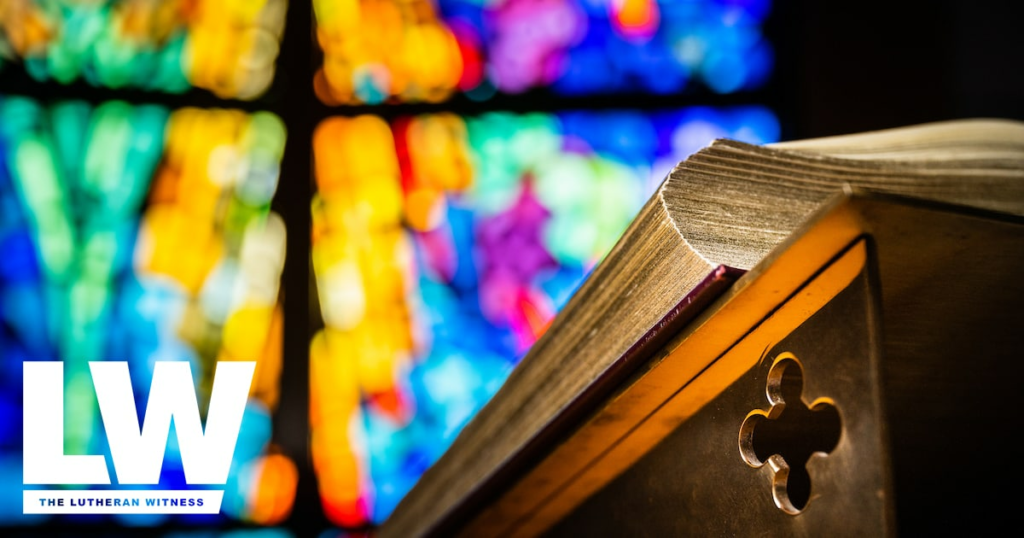by Dr. Jerald C. Joersz
When my Roman Catholic friends pray the Lord’s Prayer, they do not use the concluding doxology (“For Thine is the Kingdom . . .”). Why do they omit it, while we Lutherans (and most Protestants) include the words?
As we answer this question, some background information might be helpful:
Old English translations of the Lord’s Prayer (such as Tyndale’s New Testament from 1534 and the King James Version from 1611) included the closing doxology as part of Matthew’s text of the prayer (Matt. 6:13—Luke has a shorter version in Luke 11:2–4). Most modern English translations omit the conclusion and add a footnote explaining that early manuscript support is lacking. Teachers of the New Testament today (including LCMS) generally agree that the ascription of praise was probably not part of Matthew’s original text, but was likely a later addition (though in varied forms) growing out of ancient liturgical use of the Lord’s Prayer in Christian worship. They often point out that such an addition is not surprising, for Jewish prayers used in worship often ended with a statement of praise. They also call attention to ancient Christian sources that add some form of praise following the Seventh Petition, “deliver us from evil” (e.g., the Didache, an early Christian writing, though its date is unknown and textual transmission uncertain).
The Catechism of the Catholic Church (CCC) does not include the doxology in its text of the Lord’s Prayer, preferring a liturgical tradition that omits it. But the CCC does discuss it briefly (paragraphs 2855–56) and in a preliminary note refers to its “liturgical usage” “very early on” (2760). The CCC does not mention manuscript or textual issues.
Martin Luther in his German translation of the Bible retained the doxology (based on the Greek text then available to him), although he did not include it in his Small Catechism of 1529 (some editions after his death added it), nor did he discuss it in the Large Catechism.
In the LCMS, Luther’s Small Catechism with Explanation (2005 edition) keeps what became the traditional Lutheran version of the Lord’s Prayer that has the doxology. The catechism teaches that the doxology affirms the scriptural truth that God is able to answer the prayers of His people in Christ Jesus. God alone is King having “all good gifts in His control” and “the power to grant our petitions.” To Him belongs “all glory” and therefore He is “worthy of our praise” (Question 235).
Lutherans acknowledge and respect the tradition that includes the concluding ascription of praise in the text of the Lord’s Prayer. Most important, they recognize that it is perfectly consistent with what the Holy Scriptures teach throughout concerning the nature, purpose, and importance of Christian prayer.
—
About the Author: until his retirement, Dr. Jerald C. Joersz was an associate executive director of the LCMS Commission on Theology and Church Relations.






Pingback: List of 10+ why are there 2 versions of the lord's prayer
i would like to know why some say debtors and others say trespasses
It depends on what kind of Bible you read from.